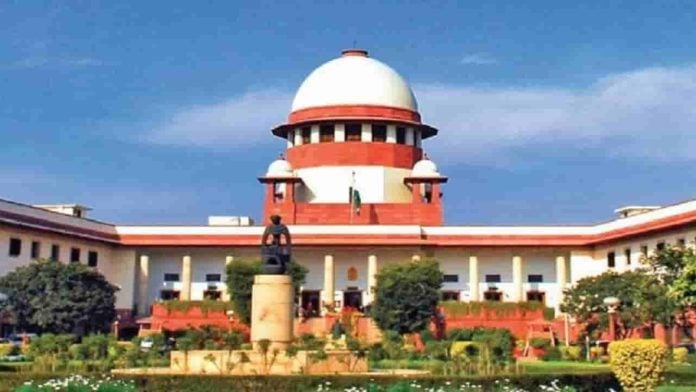The Supreme Court on Wednesday heard a Writ Petition that challenged the current Collegium system for appointment and transfer of Judges and sought implementation of the National Judicial Appointments Commission for the purpose.
The matter was mentioned by Advocate Mathews Nedumpara before the Bench led by Chief Justice of India (CJI) Justice D.Y. Chandrachud.
Petitioner-in-person Advocate Nedumpara, while contending that the matter was not being listed for hearing, urged the Apex Court to hear it on February 24.
However, the Bench said that it would first examine the petition and then consider whether the same should be heard.
Filed by Advocate Nedumpara and seven other lawyers under Article 32 of the Constitution, the petition challenged the Collegium system for appointment and transfer of judges in High Courts and the Supreme Court, and demanded implementation of the National Judicial Appointments Commission Act for the same.
The plea contended that the Collegium system for appointment and transfer of judges had resulted in denial of equal opportunity for the petitioners and thousands of lawyers who were eligible, meritorious and who deserved to be considered.
Stating that a mechanism in substitution of the Collegium was the need of the hour, the petitioners claimed that they have made repeated representations to the Central government to bring about the requisite mechanism. However, nothing concrete had taken shape, added the peitioners.
They said said that rather than the Government, the Apex Court should itself correct the error caused in creating the Collegium and in quashing the National Judicial Appointments Commission Act.
Advocate Nedumpara said that following the 2016 verdict of the Apex Court in the Supreme Court Advocates on Record Association (SCAORA) vs Union of India case, he had made representations before the Prime Minister, the Law Minister, as well as leaders of various political parties, including the Bharatiya Janata Party (BJP), Congress, Nationalistic Congress, YSR Congress and the Biju Janata Dal for restoration of NJAC, calling it the will of the people.
The petitioner said that both the Constitution (Ninety-ninth Amendment) Act, 2014 and the National Judicial Appointments Commission (NJAC) Act, 2014 had received the unanimous assent of both houses of Parliament (except for the lone dissenting vote of Ram Jethmalani) and the assent of 21
State Assemblies.
However, the Constitution Bench of the Supreme Court, by a 4:1 majority on October 16, 2015, upheld the collegium system and struck down the NJAC, terming it as unconstitutional, it added.


